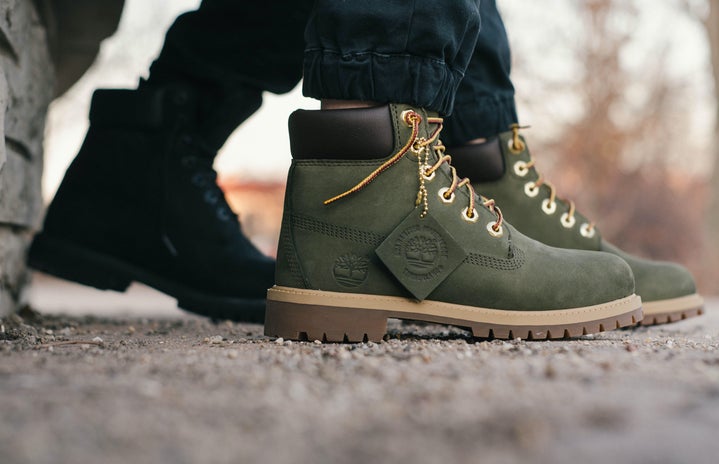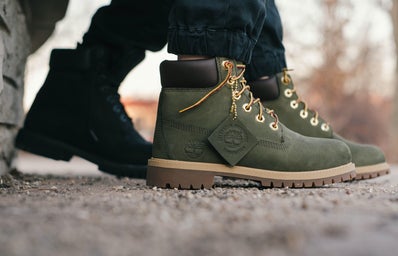In 2019, you wouldn’t think that dating and relationships with people who share a different ethnic or racial identity with you would be a thing to talk about at length. You wouldn’t think that it could cause awkward or tense moments with family, or questions from loved ones like, “So how does that work?” or “Are they legal?”
For me, I didn’t think that would happen because I was so caught up in the emotional high that I was getting from just being around my partner that I didn’t think about the various unintentional (and intentional) acts of racism that occur when people see couples of mixed races and ethnicities. It never occurred to me before, but now I think about it all the time.
When I talk about the challenges that can accompany being with someone of a different race and culture, I’m not talking about differences in religion, customs or even food preferences. I mean the systemic racism and colorism, which plagues our current society, and how past experiences and traumas can affect people and their future relationships. No matter the context of the relationship, people bring their personal baggage, and if left unchecked and unrecognized, these things can cause even more harm to a relationship. With something as polarizing as the subject of racism (even if it is 2019), there are things that can happen to mixed-race couples that can cause a lot of hurt.
What should be remembered is that it hasn’t been that long since biracial marriages were legalized. It was only 52 years ago when the unanimous Supreme Court decision came which legalized interracial marriages. In 1958, Mildred Jeter, an African American woman, and Richard Loving, a Caucasian man, got married in Washington D.C., where it was legal for them to be married. The couple returned to their home in Virginia shortly afterwards. In an anonymous tip given to the authorities, the local police arrested the couple and charged them with miscegenation, a felony at the time. The couple was sentenced to leave Virginia and not return for 25 years. After a two-month-long trial, the Supreme Court deemed the anti-miscegenation statute unconstitutional.
Though the laws against interracial marriage have been taken off the books, it doesn’t stop hateful actions from reaching interracial couples. In my own life, I have seen it and felt the pain of it as I try to reconcile with the knowledge that this might be life forever. My parent’s relationship is multi-ethnic, with my father being South American and my mother being from Pittsburgh. They couldn’t look more different, but while it is a source of richness in my house, it provides mixed reactions when I am out and about in the world with my family. I have been blessed with having the privilege of my brothers and I being white-passing for the most part, and to many normal people, my parent’s union does not cause people to look twice at us. But there have been several instances where women have clutched their purses a little tighter when my father walks by. When my mother calls my father’s name, people have turned with a sneer. I have had people say to me, “Your dad’s name is Pablo? That’s a joke right?”
But these sorts of situations can happen within the family as well. A Pitt student I interviewed mentioned that when they were in a biracial relationship, they faced several questions in the legitimacy of their own relationship. They stated, “…people were more likely to ask me what it was I found attractive or lead me to love my partner, versus when I had been with someone of my own race. It seemed like it was harder for people to understand why I was with him than it would be if he had been white, especially family members.”
I often consider the things that make me different from my partner. He’s from a small town in central PA, doing all the typical American man things that they show on television. His family is rather small, with only one cousin that he rarely talks to. I’m from South West Florida, where there are people from all over trying to vacation. I have 26 cousins in total, and while my family is constantly in each other’s business, I wouldn’t have it any other way.
My partner is unlike the boys I grew up around. He takes my thoughts seriously and will ask for my opinion on things happening in the world. He goes above and beyond to make sure that I’m safe from harm, always wants to know how my family is doing and tries his hardest to remember all of their names. Instead of fetishizing a potentially perceived exoticism in me, he treats me like a human being. He loves my culture and wants to learn more, because he loves all parts of me, even if he doesn’t always understand them.
And yet in this emotional bliss I still find myself nervous about the things that could happen in the future. Though I can pass for white, to others I’m still that little brown girl who let people call her ‘wetback’ and ‘picker’. To some people, I pass under and through the crowds as another student, and to others, my hoop earrings gifted by my parents scream ‘other’. I worry about a day that I pray never comes, when my partner is asked if I’m only with him for status, despite my birth in this country. My skin crawls in remembering that first meeting, with a once-over and a, “Where are you from?”
In the past 52 years, there has been a steady increase in the number of interracial marriages in the United States. In a study done by the Pew Research Center in 2015, 17% of all newlyweds identified themselves as mixed race. In that same year, one-in-ten people identified themselves as having a partner of a different race or ethnicity. While this is much better than the 3% of newlyweds who were in mixed race relationships in 1967, there is still the issue of systemic prejudices against couples who are interracial. In an article by CBS, in 2017, there have been several violent crimes and discriminatory acts against interracial couples including refusal to rent out apartments, refusal to sell marriage licenses and even stabbings.
Sometimes I wonder if it’ll ever get better. I wonder if there will come a day when fear and hate will come to an end and something as happy as love will not be encroached upon by hate. I become afraid with these thoughts, and yet I also wonder, must I let myself fear? Do I not love myself? Am I not loved beyond the color of my skin and cared for endlessly? And while there are things to fear in this world, must I let the hateful people of this world take away this joy that I have found?
To the people in interracial relationships, no matter what people do or say, your relationship is valid. You are deserving of happiness as much as anyone else. I hope that you remind yourself and your partner that you love is wonderful, and that the differences between you both (apparent or not) are what make it all the more special and perfect.
Photo Credits: Cover Photo, 1, 2, 3

